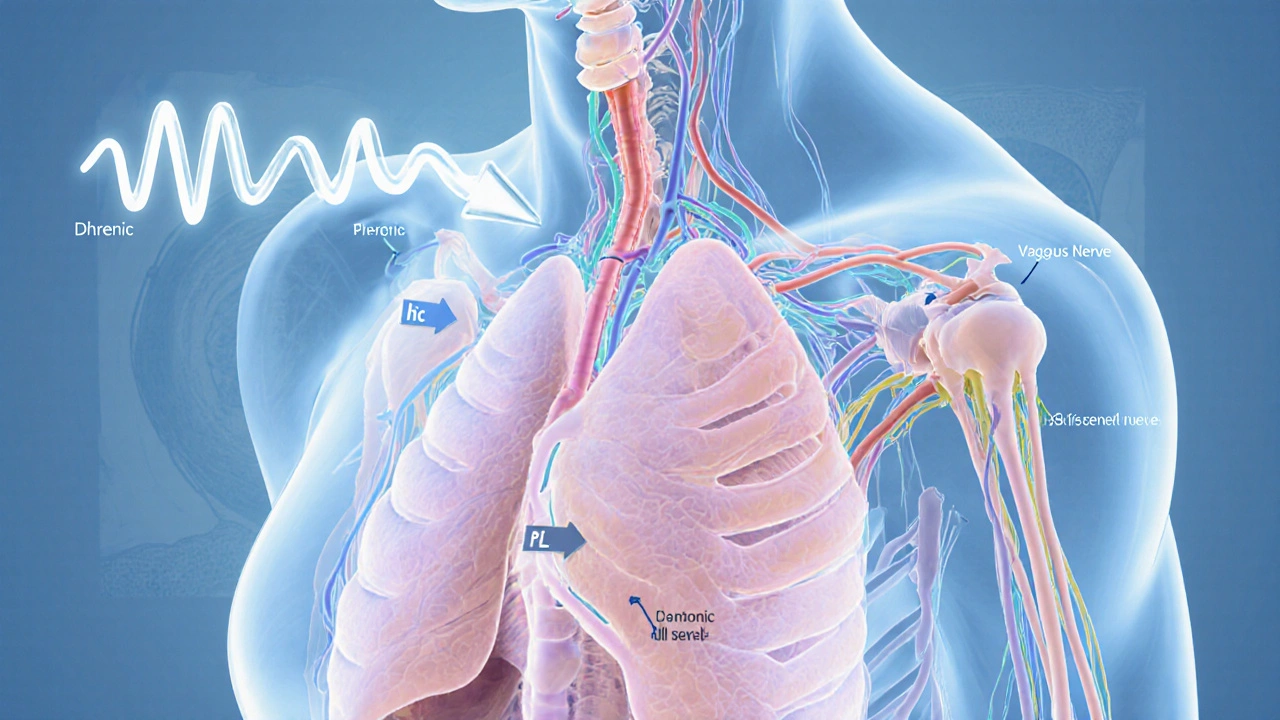Persistent Hiccups: Causes, Triggers, and Treatment Options
When dealing with persistent hiccups, a hiccup episode that lasts longer than 48 hours and often signals an underlying issue. Also known as singultus, it involves involuntary spasms of the diaphragm followed by a sudden closure of the vocal cords.
Common Triggers and Underlying Factors
One of the most frequent culprits is alcohol consumption, which can irritate the lining of the esophagus and provoke the reflex that leads to hiccups. Even moderate drinking can disturb the stomach‑acid balance and trigger diaphragm spasms. Another major trigger is gastroesophageal reflux disease, where stomach acid backs up into the esophagus, irritating the phrenic nerve that controls the diaphragm. Both conditions often appear together, making it easy to overlook a simple lifestyle tweak that could end a lingering bout.
Besides these, caffeine, sudden temperature changes in the stomach, and even constipation can set off the reflex. When the phrenic nerve or the brainstem hiccup center gets irritated, the body keeps sending the “hic” signal until something intervenes.
Managing persistent hiccups means addressing the trigger and, if needed, using medication. Drugs like baclofen or metoclopramide target the nervous pathways to stop the spasms, while simple techniques—holding your breath, sipping cold water, or stimulating the back of the throat—can break the cycle for milder cases. If hiccups linger beyond two days, it’s a sign to see a doctor, because they may point to a more serious condition such as a stroke, tumor, or metabolic imbalance.
Below you’ll find a curated collection of articles that dive deeper into each trigger, outline step‑by‑step treatment plans, and explain when professional help is essential. Keep reading to discover practical tips that can turn those endless “hic” sounds into quiet relief.
Persistent Hiccups: Causes, When to Seek Help & Effective Treatments
Learn why hiccups persist, red‑flag symptoms, diagnosis steps, and effective home and prescription treatments for persistent hiccups.
© 2026. All rights reserved.

